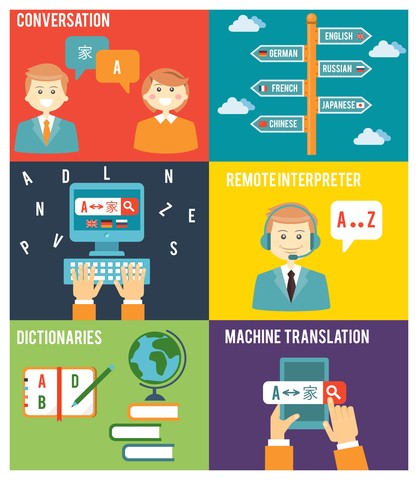It is obvious to note various companies and businesses often not grasping the need for a language translation service, or the advantages of having business and marketing items translated; and thus viewing such service as needless expenditure. The point is that for any company doing business in overseas markets, or companies desiring to multiply into foreign markets, or even hoping to communicate with consumers and staff around the globe, translating company papers, websites and promotion materials has positive and valuable results.
With the current upsurge and need for companies to go global, the necessity for business translation services is much higher than ever. You don’t have to be a fortune 500 company to start thinking or operating as one. Any business that desires to go global and yet engage with larger prospects – should look towards embracing translation services as this would provide the company’s articles, press releases and offerings to a wider marketplace with better prospects for doing business with prominent overseas clients. Your small start-up company may not be there yet, but kudos to an ever progressive global economy, those visions can now become a reality for you.
Companies using translation services for their businesses do this to help foster foreign deals & partnerships, and to enlarge their market reach and sell to global clients. A good translation of Japanese documents, for example, can make a unique great difference in how your business content is being perceived and received in Japan, and also a less quality translation can give a wrong impression as well.
If your company is involved in selling goods and services at the global marketplace, you need nothing more as evidently required as employing the services of a professional translation agency. Engaging the services of pro multilingual agencies for your translations will help you to avoid potential pitfalls and provide you the winning edge over your competitors. It isn’t just about having the idea to do so but using the right services that have core understanding of your prospects, customers, and competitors; as these folks or firms will offer you translations that are of the highest quality. This will also help you drive down your long term costs and help you maintain language consistency. It will help to increase your profits with obvious higher returns on investment. Check for example how a translation company walks the walk rather than just talk the talk by having its website in Spanish (www.pangeanic.es), Japanese (www.pangeanic.jp), Chinese (www.pangeanic.cn).
Companies that embrace using such services are twice more probable than their Fortune 500 counterparts to experience increase in total revenue. Businesses that translated their contents in order to relate with and sustain partnership were 3 times as more in the offing to experience revenue upsurges, and are also more likely to attract improved profits.
The results are obvious that if any business has or is looking to explore international locations or if it deals with transnational consumers, the use of translation services can only serve to benefit these aims as mentioned above. From translating mails, prospectus, websites, and documents amongst others – these can go a long way and such services should be a fundamental part of every enterprise’s long term marketing and business enlargement strategies.


